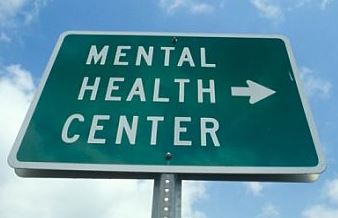Schizophrenia and Heredity Overview
Having a first-degree relative (FDR) with schizophrenia is one of the most significant risks for the disorder. [1] While the risk is 1 percent in the general population, having an FDR such as a parent or sibling with schizophrenia increases the chance to 10 percent[2]. The risk jumps to 50 percent if both parents have been diagnosed with schizophrenia, while the risk is 40 to 65 percent[3] if an identical twin has been diagnosed with the condition.
A 2017 study[4] from Denmark based on nationwide data on over 30,000 twins estimates the heritability of schizophrenia at 79 percent. The study concluded that, based on the risk of 33 percent for identical twins, the vulnerability for schizophrenia isn’t solely based on genetic factors.
Although the risk of schizophrenia is higher for family members, the Genetics Home Reference[5] indicates that most people with a close relative with schizophrenia will not develop the disorder themselves.
What is Schizophrenia?
Schizophrenia is a severe mental illness classified as a psychotic disorder. Psychosis affects a person’s thinking, perceptions, and sense of self. According to the National Alliance on Mental Illness (NAMI)[1], schizophrenia affects approximately 1 percent of the U.S. population, slightly more males than females.
Schizophrenia and Genetics
Your chances of developing the condition due to a genetic link increase with your proximity to the person who has the disease. For example, if you have a twin who has the disorder, the odds of you also developing it could be as high as 65%. No single gene can cause schizophrenia. Instead, research suggests that many different genes and their mutations could cause the condition to develop.
If you already have a genetic risk of developing schizophrenia, it’s essential to be aware that exposure to certain environmental factors could increase that risk[2]. Factors such as:

- Pregnancy complications: Birth and pregnancy complications could increase the risk of a child who is already genetically disposed to developing schizophrenia
- Stress: Being exposed to severe anxiety or experiencing a traumatic event could increase your risk of developing schizophrenia
- Drug abuse: Abusing drugs such as cannabis and hallucinogens could trigger schizophrenia if you are genetically prone to the condition
- Brain structure: Differences in brain structure and function could also cause schizophrenia. Scientists believe that changes to the brain during puberty may trigger the development of psychotic conditions, especially in people who were already genetically predisposed to developing the disease.
Causes of Schizophrenia
Along with genetics, other potential causes of schizophrenia include:
- The environment: Being exposed to viruses or toxins, or experiencing malnutrition before birth, can increase the risk of schizophrenia.
- Brain chemistry: Issues with brain chemicals, such as dopamine and glutamate, may contribute to schizophrenia.
- Substance use: Teen and young adult use of mind-altering (psychoactive or psychotropic) drugs may increase the risk of schizophrenia.
- Immune system activation: Schizophrenia can also be connected to autoimmune diseases or inflammation.
Different Types of Schizophrenia
Before 2013, schizophrenia was divided into five subtypes as separate diagnostic categories. Schizophrenia is now one diagnosis.
Although the subtypes are no longer used in clinical diagnosis, the names of the subtypes may be known for people diagnosed before the DSM-5 (in 2013). These classic subtypes included:
- Paranoid, with symptoms such as delusions, hallucinations, and disorganized speech
- Hebephrenic or disorganized, with symptoms such as flat affect, speech disturbances, and sloppy thinking
- Undifferentiated, with signs displaying behaviors applicable to more than one type
- Residual, with symptoms that have lessened in intensity since a previous diagnosis
- Catatonic, with signs of immobility, mutism, or stupor
How is Schizophrenia Diagnosed?
According to the DSM-5, to be diagnosed with schizophrenia, two or more of the following must be present during one month.
At least one must be numbers 1, 2, or 3 on the list:
- Delusions
- Hallucinations
- Disorganized speech
- Grossly disorganized or catatonic behavior
- Negative symptoms (diminished emotional expression or motivation)
DSM-5 is the Diagnostic and Statistical Manual of Mental Disorders-IV, the guide published by the American Psychiatric Association and used by healthcare professionals to diagnose mental disorders.
Diagnosis
Signs and symptoms of schizophrenia include false perceptions called hallucinations. Auditory hallucinations of voices are the most common hallucinations in schizophrenia, but affected individuals can also experience hallucinations of visions, smells, or touch (tactile) sensations. Strongly held false beliefs (delusions) are also characteristic of schizophrenia. For example, affected individuals may be certain that they are a particular historical figure or that they are being plotted against or controlled by others.
People with schizophrenia often have decreased ability to function at school, at work, and in social settings. Disordered thinking and concentration, inappropriate emotional responses, erratic speech and behavior, and difficulty with personal hygiene and everyday tasks can also occur. People with schizophrenia may have diminished facial expression and animation (flat affect), and in some cases become unresponsive (catatonic). Substance abuse and suicidal thoughts and actions are common in people with schizophrenia.

Certain movement problems such as tremors, facial tics, rigidity, and unusually slow movement (bradykinesia), or an inability to move (akinesia) are common in people with schizophrenia. In most cases, these are side effects of medicines prescribed to help control the disorder. However, some affected individuals exhibit movement abnormalities before beginning treatment with medication.
Some people with schizophrenia have mild impairment of intellectual function, but schizophrenia is not associated with the same types of physical changes in the brain that occur in people with dementias such as Alzheimer’s disease.
Psychotic disorders such as schizophrenia are different from mood disorders, including depression and bipolar disorder, which primarily affect emotions. However, these disorders often occur together. Individuals who exhibit strong features of both schizophrenia and mood disorders are often given the diagnosis of schizoaffective disorder.
A diagnosis of schizophrenia is given after consulting with a medical expert who will cross-reference your symptoms with the list of signs provided by the DSM-5. A diagnosis of schizophrenia is made if a person has two or more core symptoms most of the time for a month and some mental disturbance over six months, one of which must be hallucinations, delusions, or disorganized speech for at least one month.
The core symptoms of schizophrenia include:
- Hallucinations
- Delusions
- Catatonic behavior
- Gross disorganization
- Disordered thinking
- Diminished emotional expression

To give a conclusive diagnosis, your doctor will conduct a physical examination and take a look at your medical history. Unfortunately, there are no laboratory tests to diagnose schizophrenia. Still, your doctor might recommend some tests like a CT scan or an MRI to rule out any other conditions that mirror schizophrenia symptoms. In addition, your doctor will ensure that your symptoms are not caused by substance abuse or another mental disorder.
Treatment
There is no cure for schizophrenia, mainly because scientists have not pinpointed a single cause. However, schizophrenia treatment options can help manage symptoms and improve the daily functioning of a person living with the condition.
Medication
Antipsychotic medications are typically administered to reduce the severity of the psychotic symptoms that characterize this condition. However, they don’t ensure there will be no further psychotic episodes. When taking antipsychotic medications, you could experience some side effects like weight gain and restlessness. These symptoms are most likely to subside over time. If they don’t or become worse, speak to your doctor immediately.
Other side effects of antipsychotic medications include:
- Blurred vision
- Drowsiness
- Dry mouth
- Muscle spasms
- Restlessness
- Tremor

Even if you notice a significant improvement in your symptoms and feel that you no longer need medication, you shouldn’t discontinue any medication prescribed for your schizophrenia without consulting your doctor.
Psychotherapy
Psychotherapy treatments like cognitive behavioral therapy and behavioral skills training are typically recommended to help manage symptoms of schizophrenia. These treatments are recommended alongside medication and not as a replacement. Psychotherapy treatments help equip you with managing your symptoms and improving your daily functioning.
Coping
Living with and supporting a loved one with schizophrenia can be difficult, especially when experiencing severe psychotic symptoms like hallucinations and delusions. Besides the treatment plan prescribed by their doctor, it’s essential for a person living with this condition to have the care and support of the people closest to them. Here are some ways you can help:
- Encouraging them to join support groups with other people living with their condition. There are also support groups for the loved ones of people living with this condition that will give you more tips on coping.
- By ensuring that they are consistent with their treatment and taking their medications regularly.
- Be supportive when they have a psychosis episode. While you can tell that they are hallucinating or having a delusion, they can’t.
At We Level Up Treatment Center provides world-class care with round-the-clock medical professionals available to help you cope. In addition, we work as an integrated team providing information about schizophrenia and heredity and other aspects of treatment. Make this your opportunity to reclaim your life. Call today to speak with one of our treatment specialists. Our specialists know what you are going through and will answer any of your questions.
Your call is private and confidential, and there is never any obligation.
Sources
[1] NAMI – https://www.nami.org/learn-more/mental-health-conditions/schizophrenia
[2] NAMI – https://www.nami.org/Learn-More/Mental-Health-Conditions/Schizophrenia
[3] PNL – http://pnl.bwh.harvard.edu/education/what-is/schizophrenia/
[4] Biological Psychiatry Journal – https://www.biologicalpsychiatryjournal.com/article/S0006-3223(17)31905-4/fulltext
[5] NIH – https://ghr.nlm.nih.gov/condition/schizophrenia#inheritance
[6] Mayo Clinic Staff. (2018). Schizophrenia.
mayoclinic.org/diseases-conditions/schizophrenia/diagnosis-treatment/drc-20354449
[7] Schizophrenia. (2019).